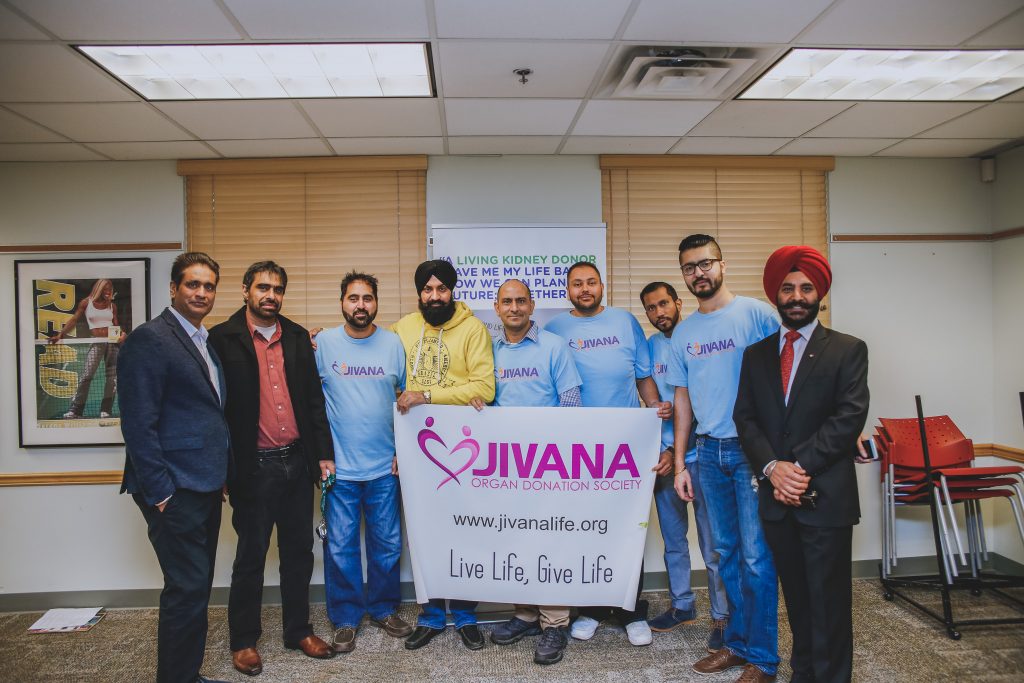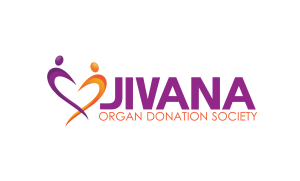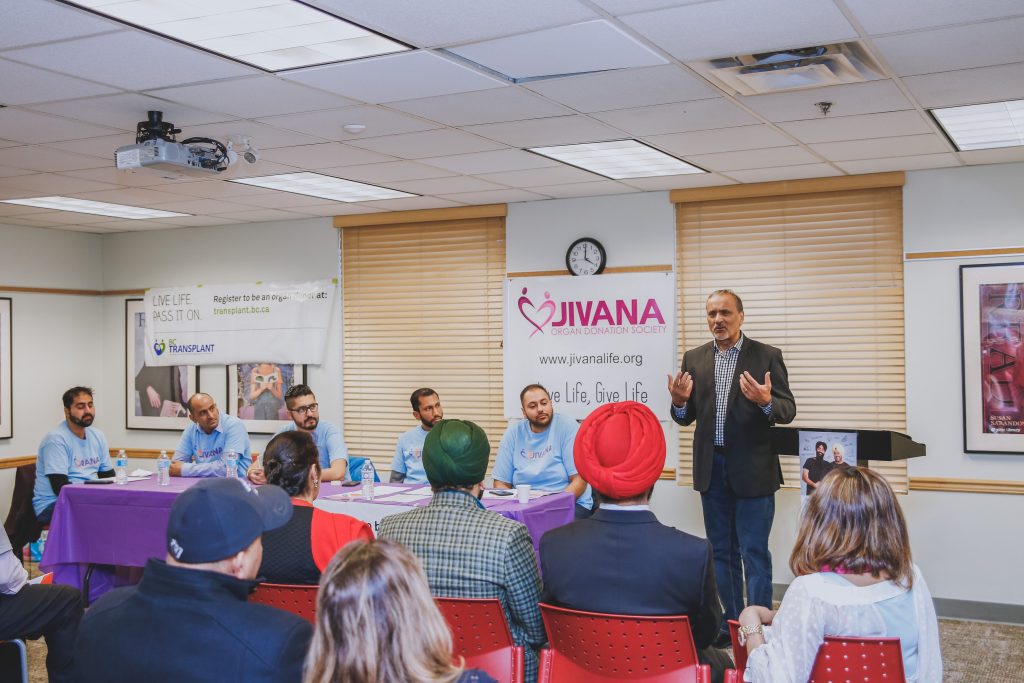
Photo by Premdeep Saran
by Ray Hudson
Earlier this week, I was sitting in a restaurant having coffee with Jazz Gill and Sunny Tutt, two vibrant healthy young men, who were eager to share their stories and who, had it not been for organ transplants, probably wouldn’t be alive, let alone living normal healthy lives.
 At the age of 14 years, Jazz Gill became ill at school and was taken to the emergency department at the hospital. By that time, he’d lost 75% of his blood volume. Subsequent investigation found that his liver had failed due to hepatitis C, which was traced to an earlier blood transfusion. He needed a liver transplant.
At the age of 14 years, Jazz Gill became ill at school and was taken to the emergency department at the hospital. By that time, he’d lost 75% of his blood volume. Subsequent investigation found that his liver had failed due to hepatitis C, which was traced to an earlier blood transfusion. He needed a liver transplant.
Over the next nine years, he was in and out of hospitals, being treated to keep his liver functioning as long as possible. Finally placed on the transplant list, it was two years until a donor was found and the operation conducted.
“It will be thirteen years in April since the transplant,” said Jazz, “and I’m living a healthy, normal life. The only difference is the need to take the anti-rejection medications.”
At the age of eighteen, Sunny Tutt was training to become a Lineman for the SFU Clan football team. With a former CFL player coaching him, he was sprinting up hills and benching two-hundred pounds when he became sick. Severe weakness and pneumonia followed, but he didn’t get any better, even with the pneumonia gone.
On the fifth trip to the ER in Surrey, he and his father were able to convince them that something was seriously wrong. He was finally admitted, and an x-ray showed that his heart was two and a half times its normal size and about 15% efficient. He was diagnosed with a cardiomyopathy, an irreversible and fatal condition where the heart muscle fails. Over the next eleven years he was treated with a “cocktail of medications” as his physicians said, “to keep the heart going as long as possible.” In 2013, he went into complete heart failure and had a heart pump implanted. In July of 2014, he received a new heart, and he could begin living again.
He is now the picture of health, and is engaged to Manpreet Johal, who is also the event planner and community relations officer for Jivana.
Through their ordeals, both of these young men met others who had gone before them in receiving donor organs. Jagtar Gill who received a new liver, and Jas Oberoi, who suffered the same illness as Sunny, and received a new heart, were there to provide encouragement and support to the new transplant recipients prior to the operation and through the recovery.

Photo: Submitted
Expressing a desire to give back and to increase awareness of need for organ donation in the South Asian Community, the four men formed the Jivana Organ Donation Society, and a week ago, launched their awareness campaign:
“To raise awareness, in the South Asian community about the importance of organ donation, by educating people on the organ transplant process, eliminating cultural beliefs, myths and misconceptions, (often the main cause preventing people registering to become a donor) to provide accessible opportunities to register and positively encourage donors to come forward.”
Sunny said that it is necessary that the donor and recipient must be of the same blood type. Blood types are not evenly distributed among all ethnic groups. South Asian people are primarily type B blood group, and the shortage of type B organs is due to the fact that South Asian people are less likely to be organ donors. To improve on this situation, the Jivana Organ Donation Society was established.
It’s not just a problem of the South Asian community. Across BC, some 500 people are on the wait list for organ transplant. That number is about 4,000 across Canada, with sixteen hundred added to the list each year, and although an estimated 90% of Canadians support organ and tissue donation, only 25% have made plans to donate.
In most jurisdictions, an organ donor notice can be attached to one’s driver’s license, so in the event of sudden death through accident, viable organs can be removed for transplant within the very short time available. The key is registering to be an organ donor in the first place.
Just as important as the decision to donate organs, is informing family members of that decision, so they are aware of the wishes of the individual to donate their organs.
“It seems to me a shame,” said Gill, “that perfectly good organs that can save someone’s life, are being buried or burned because of a lack of awareness of the desperate need for organ donors. We want to change that.”
As well as raising public awareness to the issue, the society is determined to contact physicians, to encourage them to discuss the issue of organ donation with patients. Potential donors need to be assured that donation is only considered after all life-saving efforts have been exhausted, and that it’s certain the patient will not survive. There is never any risk that organ retrieval will occur earlier as the BC Human Tissue Gift Act says that two doctors “must declare the death of a potential organ donor, independent of transplant.”
Another aspect of being a donor, not as well known, is that of live donation. A person may donate a portion of their liver while alive, and the liver will grow back within weeks. According to Donate Life America, kidneys are the most common organs donated by living donors, however other organs that can be donated as well include a lobe of a lung, partial liver, partial pancreas or intestine.
Organ donation has made significant gains in saving and dramatically improving the lives of thousands of people, and medical research is ongoing to improve treatments and outcomes, as evidenced by Sunny Tutt and Jazz Gill. Everyone has the power to make a decision that may provide a final life-giving gift.
There is no cost to register or become a donor, and all medications and anti-rejection drugs for recipients are covered by MSP and the BC Transplant Society.
For more information, visit the Jivana Society at www.jivanalife.org.












